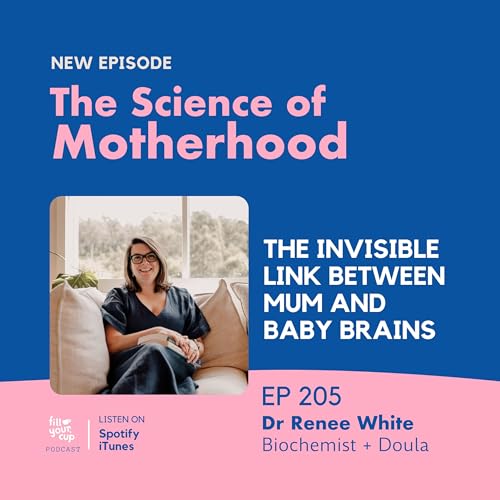Breastfeeding is often spoken about as something that should feel natural, intuitive, and just click. But for many mums, the reality looks very different.
Pain that doesn’t settle. A baby who feels tense, sleepy, or unsettled at the breast. And a quiet question running in the background, why is this so hard for us?
In this episode of The Science of Motherhood, Dr Renee White sits down with Emily Jones, an Advanced Paediatric Osteopath, IBCLC Lactation Consultant, mother, and founder of Align & Nurture, to unpack what’s happening beneath the surface when feeding feels challenging, and why struggling does not mean you’re doing anything wrong.
Together, they explore breastfeeding through both a physical and emotional lens, helping make sense of how birth experiences, body tension, positioning, and nervous system regulation can all shape early feeding journeys.
You’ll hear about:
- How different birth types can shape early feeding
- Signs your baby’s body might be making latching harder
- When breastfeeding pain needs more than “pushing through”
- Simple positioning tweaks to ease feeding for you both
- Ways to look after your mental health while you work on feeding
Breastfeeding challenges are rarely about effort. They’re often about your baby’s body, your recovery from birth, and the support around you. This episode gives you practical context for what might be going on, and what you can do next, without blame.
Resources & Links:
📲 Connect with Renee on Instagram: @fillyourcup_
🌐 Learn more about Dr Renee White and explore Fill Your Cup Doula services
🍪 Treat yourself with our Chocolate + Goji lactation cookies
🔗 Learn more about Australian Breastfeeding Association https://www.breastfeeding.asn.au/
🔗 Connect with Emily and Align & Nurture
Website: https://www.alignandnurture.com.au
Instagram: https://www.instagram.com/alignandnurture
This episode is proudly supported by Fill Your Cup, Australia’s first doula village.
If this episode helped, share it with a mum who needs a break but doesn’t want the chaos. And don’t forget to hit subscribe so you never miss an episode of The Science of Motherhood. 💛
Disclaimer
The information on this podcast presented by Fill Your Cup is not a substitute for independent professional advice. Nothing contained in this episode is intended to be used as medical advice and it is not intended to be used to diagnose, treat, cure or prevent any disease, nor should it be used for therapeutic purposes or as a substitute for your own health professional's advice.
 21 分
21 分 55 分
55 分 1 時間 5 分
1 時間 5 分 1 時間 29 分
1 時間 29 分 1 時間 4 分
1 時間 4 分 57 分
57 分 19 分
19 分 22 分
22 分
